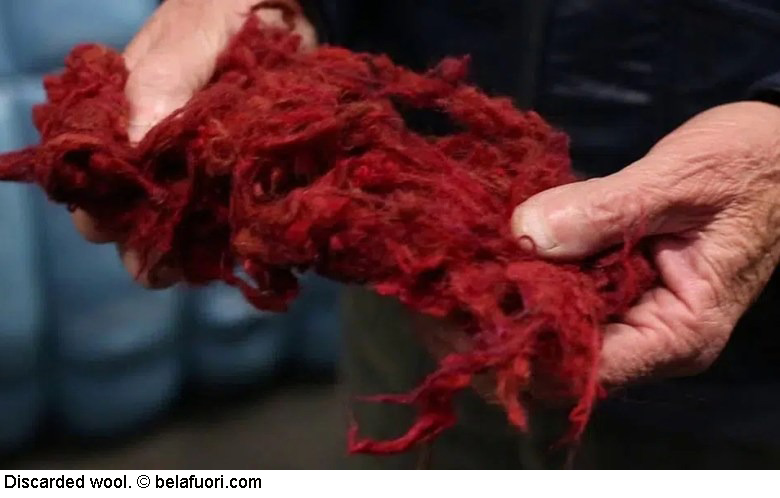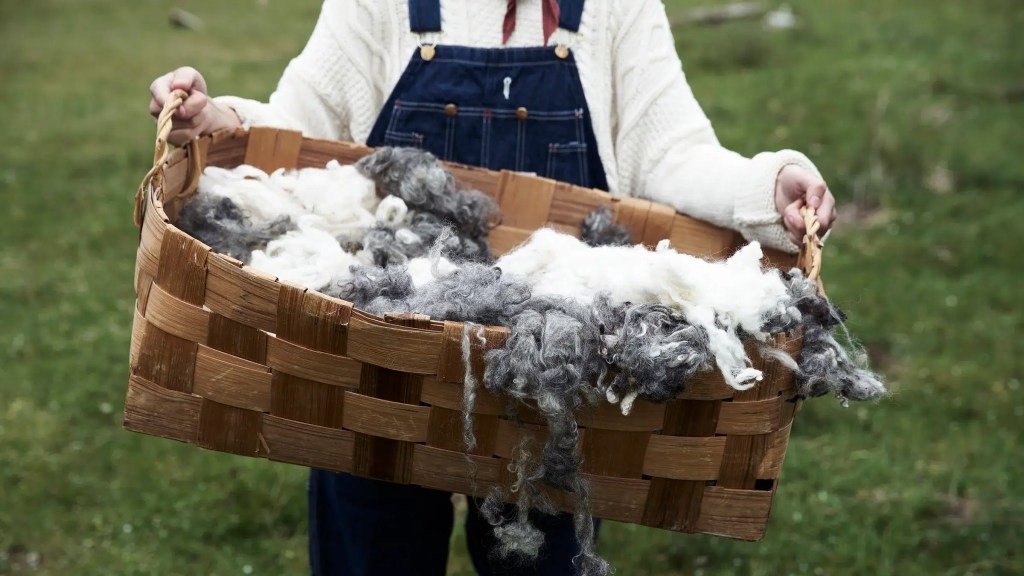
Category: FIBRES
Country: Sweden
By Asif Iqbal
Last Updated: 30th March, 2024 | 4 minutes read
For years, the Swedish wool industry faced a conundrum. More than 50% of the wool produced in the country was considered waste, primarily due to the presence of vegetable matter like straw. This wool, while abundant, was unsellable and often relegated to lesser applications such as insulation or stuffing. Excess straw residue in wool can have a significant impact on its quality, affecting its texture, appearance, and performance.
Traditional wool processing methods often struggle to effectively remove straw residue even after washing, carding and spinning, leading to waste and inefficiencies in production. Each year, raw, carded, and yarn wool comprising more than 1,700 metric tonnes are imported into Sweden. The carbon footprint of this imported wool is frequently larger than that of Swedish wool. It was a significant loss of valuable resources and a missed opportunity for the textile industry. Swedish fashion and textile manufacturers were reportedly looking more and more for locally produced, bio-based, and recyclable materials like wool, according to the Swedish Wool Initiative.
Klippan Yllefabrik’s Innovative Solution
Klippan Yllefabrik is a renowned Swedish textile manufacturer with a rich history of producing high-quality wool products. Known for their commitment to sustainability and innovation, they have recently made waves in the industry with their groundbreaking approach to wool processing.
Klippan Yllefabrik, in collaboration with The Swedish Wool Initiative led by Axfoundation successfully removed the plant residues by introducing an additional step in the wool processing called combing. This process resulted in a soft, pliable worsted yarn that turned a previously discarded resource into a sought-after material for the fashion industry.
Worsted yarn is known for its smooth texture and durability, making it a popular choice for high-quality woven fabrics. Its production requires meticulous attention to detail and a commitment to excellence in processing. Klippan Yllefabrik has invested significant resources in research and development to address the challenges posed by excess straw residue in wool. Their innovative approach to wool processing has led to the development of a new worsted yarn that utilizes previously discarded wool, setting a new standard for sustainability in the industry.
By utilizing previously discarded wool and incorporating it into their production process, Klippan Yllefabrik is exemplifying the principles of a circular economy. This sustainable approach minimizes waste and maximizes resources, creating a more environmentally friendly system of production.
Recycling wool not only reduces waste but also has significant environmental benefits. By reusing materials that would have otherwise been discarded, Klippan Yllefabrik is contributing to the conservation of natural resources and reducing the carbon footprint of their operations.

Interesting features of the new worsted yarn
Klippan Yllefabrik’s new worsted yarn, crafted from previously discarded wool with excess straw residue, offers a unique blend of quality and performance. Despite its humble origins, this yarn boasts exceptional durability and a soft, luxurious feel, making it a top choice for discerning crafters and textile enthusiasts.
This innovative worsted yarn isn’t just a one-trick pony. Its versatility shines through in a variety of applications, from cozy knitwear and elegant home textiles to durable upholstery fabrics. With this yarn, the possibilities are endless, allowing creators to explore their craft without limitations. It offers fashion brands a sustainable material that is both high-quality and recyclable. It’s a win-win situation: the environment benefits from reduced waste, and fashion brands gain a new material that meets the growing demand for sustainable products.
Market Impact and Future Prospects
The introduction of Klippan Yllefabrik’s new worsted yarn has caused quite a stir in the textile industry. With its sustainable approach and superior quality, the yarn has garnered praise from manufacturers, designers, and consumers alike. Its positive reception highlights a growing demand for eco-friendly products that don’t compromise on performance.
As the market continues to embrace sustainable practices and eco-conscious products, Klippan Yllefabrik is poised for expansion and growth. With the success of their new worsted yarn paving the way, the company has exciting prospects for diversifying their product range, reaching new markets, and solidifying their position as a leader in sustainable textile production.
The success of this initiative is a testament to the power of collaboration across the wool value chain. The Swedish Wool Initiative has been instrumental in establishing Sweden’s first national classification system for wool and improving infrastructure to connect buyers and sellers. This collective effort has led to several product innovations, including the new yarns and finished wool products in fashion, outdoor, and home décor sectors.
“This is a prime example of innovation that wouldn’t be possible without uniting the entire value chain, from sheep farms to industry. By coordinating Swedish wool processing with industrial requirements, we open up new opportunities for sustainable products in a variety of industries, including fashion.” Johan Sidenmark, project manager for the Swedish Wool Initiative.
Klippan Yllefabrik’s Commitment to Sustainability
Klippan Yllefabrik’s venture into sustainable worsted yarn production is more than just a new product; it’s a statement about the future of fashion. As the industry moves towards sustainability, such innovations are crucial in paving the way for a greener, more responsible fashion landscape. The company’s commitment to sustainability doesn’t stop at yarn production. They have implemented various initiatives to reduce their environmental impact further:
Energy Reduction: They have successfully reduced their energy consumption by more than 50% in five years during the manufacturing of plaids.
Recycled Packaging: The plastic bags used for their blankets and throws are made from recycled plastic.
Natural Materials: From the beginning, Klippan Yllefabrik has chosen to use 100% natural materials for all their products.
Oeko-Tex® Certified Production: Their manufacturing process takes place with great care in their Oeko-Tex® certified factory.
Ecophoria Project: They conducted a test where wool blankets covered weeds to create new growing beds, and after a year, there were no traces of wool left in the ground, demonstrating the biodegradability of their materials.
Courtesy: Texspacetoday.com
Copyrights © 2025 GLOBAL TEXTILE SOURCE. All rights reserved.